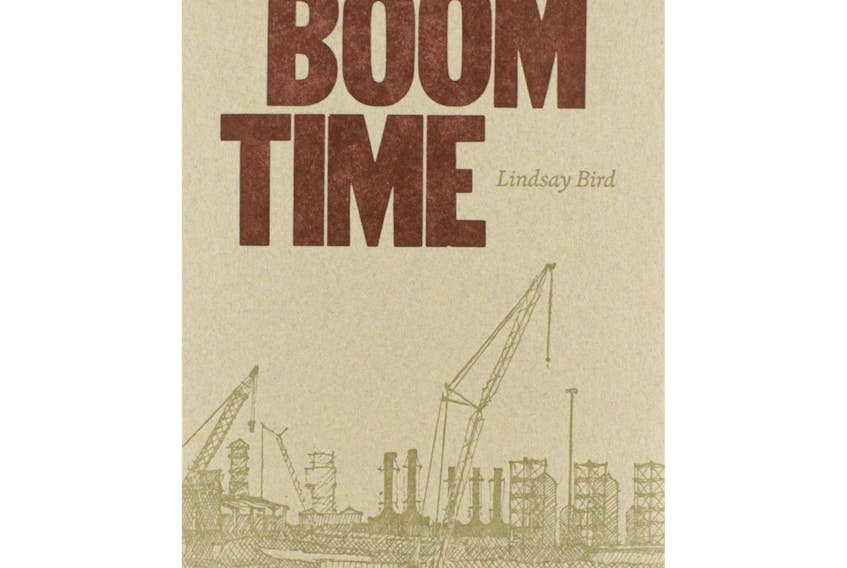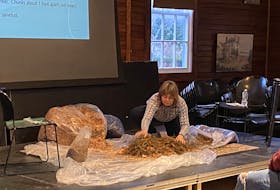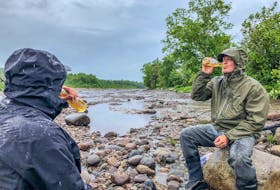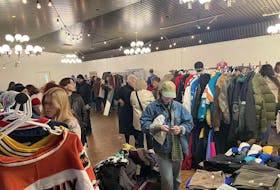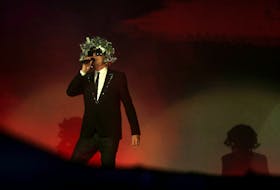'Boom Town" is Lindsay Bird’s debut volume (though you might have heard her name – by day she’s a journalist with CBC radio on the west coast).
“Boom Time” is inspired by her two-year stint in the construction camps in Northern Alberta. She writes with zip and ingenuity, her language steeped in young, rough, expat culture (many of her co-workers are of course from Newfoundland, and this was an environment where everyone was from somewhere else).

In “Airport Run,” for example, “Politely doused / in company / swag, the Filipino / pipefitters offer / no opinions / upon arrival. Plane food / must have been / just fine. Van fills / with dozing / embroidery …”
I especially appreciate the flair of knitting those latter two words together.
Settings are after pre-fab, man-made temporary housing and industrial framework (and definitely structured by man; the males and females here have their determined and separate spheres). Though there’s a lot of chemistry involved in harvesting natural resources, like “Bitumen”; “It’s got that raw disco / glitter, sparkling like / a girl just asked to dance / wearing all the mascara / ever made …”
And there’s an inherent flimsiness, even the private sleeping spaces are improperly insulated against the extremes of the weather, or the storms of their neighbours.
“Lay down our date / early, pressing together / like pancake batter / new to the pan. Let bodies / bubble up, listen / to the downstairs neighbour beat his wife. / He lends me earplugs / for the night. Curled together / like two cold dogs wishing / they were bears, could / hibernate and wake to / the cubs of love.”
Lots of poems race along a highway, fraught and urgent by schedule if not desire. Work routines dictate who needs to be where, when. Destinations might be missed, or disappointing. “All I Have To Say About Calgary / What a good place / to buy a pair of shoes.” Personal cravings burst out in often inappropriate ways in the downtimes, hyped up by intense repetitive work that pays too much money.
There are scrapes and collisions, mechanical and physical.
In “The Wife,” “Little hoofbeats /down my cheeks, / then repeat. /Hoofbeats.”
That’s the problem with things that go boom. They might leave a scar.
•••

Tom Dawe’s first poetry collection, “Hemlock Cove and After.” was published by Breakwater in 1975. Four more, by Breakwater and other publishers, followed; “Where Genesis Begins” was a collaboration with visual artist Gerald Squires. In addition to debuting his collection “Pilgrim,” this volume also includes Dawe’s earlier work, in latest revised form (where applicable).
The writing track backward, to some solo pieces dating from 1965. An Appendix includes the original Table of Contents from the three full-length collections, and there are Indexes of First Lines and Titles.
Altogether a serious manuscript from a serious poet.
Not serious as in dour – Dawe is curious, ranging, drenched in the natural world (opening with a quote from Whitman), even playful (ditto). But he’s invested in the forms, in each word, and has been producing very good work for a very long time (he’s written eighteen books in total).
Dawe’s techniques, arrangements, and formats changed over time – for one simple observation, saving haiku, which he seems to have composed now and again all along, his pieces get shorter – but what he infused his words into remained, broadly, his family, his childhood (not romanticized), the natural world, and the mythical realm (this is not a criticism). Time itseLf shifts these from one domain to another, as living family members become ghosts, and his own immediate experience becomes memory and then history.
Other figures make appearances, such as American poet Mary Oliver, the bizarre Victorian entity Spring-heel Jack, the Biblical Lot’s Wife, Rumpelstiltskin, even Charlie Brown.
Rather than quoting bits and pieces from here and there, here’s his recent take on the art that is Dawe’s practice and ethic:
Grand Canyon
Don Marquis once said
that publishing a book of poetry
is like dropping a rose petal
down the Grand Canyon
and waiting for the echo.
I’ve been there.
And, to other poets,
I remind you, as I remind myself,
how wonderful the Canyon can be.
Consider your choices:
all those branching paths
leading down.
Along earth’s tally-stick,
may you pick up what the river says,
and arrive at the playful side
of raven’s shadow.
May you be struck
by the cascading song
of the Canyon wren,
and rose fragrance
rising
on an Anasazi wind.
Joan Sullivan is editor of Newfoundland Quarterly magazine. She reviews both fiction and non-fiction for The Telegram.
RELATED:

